Emergency Dentistry Leesburg
Urgent Dental Care for Leesburg Families

Have you developed a sudden, inexplicable pain in your tooth, or has your mouth suffered from some sort of physical trauma? Odds are you have a dental emergency and acting quickly could mean the difference between keeping your complete smile and losing some of your teeth. Dr. Pham will make arrangements to see you as quickly as possible to repair the damage and help you relieve your pain. If you or someone you love has developed a dental problem that needs urgent attention, get in touch with Downtown Family Dental of Leesburg immediately; we can advise you on keeping your teeth safe until your appointment.
Why Choose Downtown Family Dental of Leesburg for Emergency Dental Care?
- Talented Dentist with Years of Experience
- Multiple Sedation Methods Available
- Several Dental Insurance Plans Accepted
How We Treat Dental Emergencies
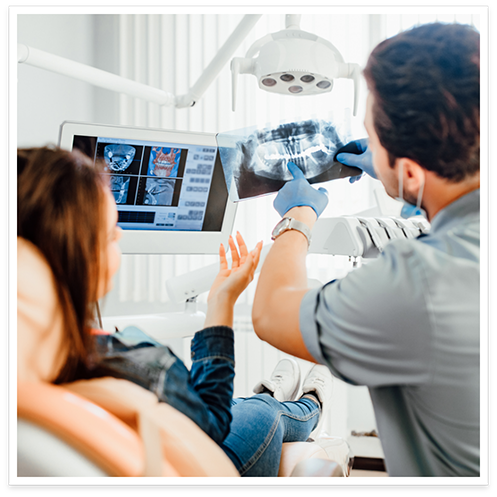
- Get scheduled as soon as possible for an appointment: When you call our office, we’ll do everything we can to get you seen that very same day. We’re happy to provide first-aid tips over the phone as well to ensure you can manage your symptoms before you arrive.
- Completing an emergency exam: After you reach us, our dentists will perform an emergency exam, then capture digital X-rays if needed to determine the source and extent of your emergency. If you are in immediate pain, we’ll do our best to get you out of discomfort.
- Reviewing our findings: Our team will break down our findings with you in detail and explain which treatments we believe will best address your symptoms as well as prevent your emergency from coming back or worsening. This treatment plan will also include estimated costs and an expected timeline associated with your care.
- Get the care you need: Our team will work diligently to get your emergency handled, whether it’s through dental fillings, crowns, root canal therapy, extractions, or another service if deemed appropriate.
The Most Common Dental Emergencies
It’s hard to have an exact definition for a dental emergency simply because there are so many kinds! In general, any condition that’s causing you pain or discomfort has caused swelling or bleeding, or has damaged your teeth should be treated as an emergency. If you’re not sure whether an oral health issue rises to the level of an emergency, it’s better to err on the side of caution and call us for an appointment. Some of the most common dental emergencies and how to manage them ahead of your visit can be found below.
Understanding the Cost of Dental Emergencies
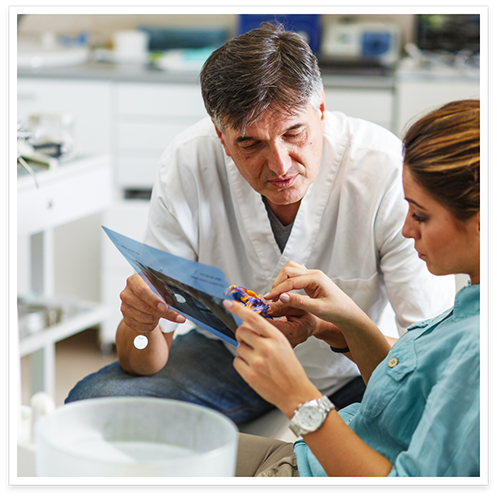
Without completing an emergency exam, we won’t be able to provide a specific cost for your care. After we’ve done an evaluation, we’ll know which treatments are best for your needs and address your symptoms at the source. No matter what your treatment costs, you’ll always have a detailed estimate ahead of time. We’ll work with you to make your care as affordable as possible. The last thing you should do is assume you can put off care that you need as this generally results in your emergency getting worse.
Every Dental Emergency is Different
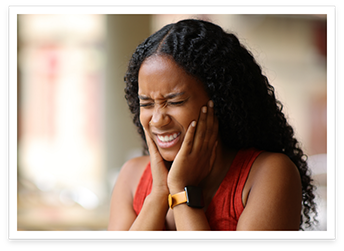
By performing a detailed exam at our office, we’ll be able to determine the exact source of your dental emergency as well as confirm whether a simple or more complex treatment is necessary to handle it. For example, some emergencies may only need inexpensive solutions like dental fillings or prescription medications. If the damage is more severe, dental crowns, root canal therapy, or even extraction could be required to alleviate your pain and get your oral health back to normal. Before we begin any phase of treatment, you’ll know all your available options so you can make an informed decision on your care.
Does Dental Insurance Cover Dental Emergencies?
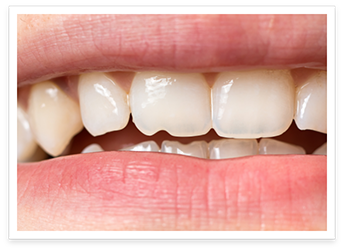
In most cases, dental insurance plans offer some level of coverage for treating dental emergencies. For example, it’s not uncommon for plans to provide coverage for an emergency exam. However, services to treat the emergency typically receive partial coverage (i.e. between 80% and 50%), including root canal therapy, crowns, extractions, and other restorative services. Keep in mind that every plan is different and annual maximums may come into effect, so speak with your dental insurance company directly first before you commit to a treatment plan. Our team is more than happy to process any claims you may have.
Other Options for Making Dental Emergencies Affordable
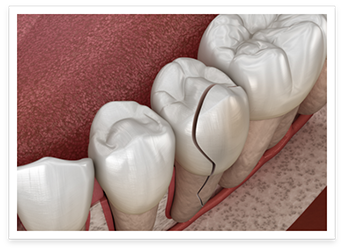
If you are concerned about covering the cost of your dental emergency and you don’t have dental insurance to utilize at this time (or your plan isn’t providing as much coverage as you were hoping), alternative financing options may be worth considering.
One option to consider is our in-house Wellness Plan, which provides you with guaranteed rates for specific services all without having to worry about claims forms, deductibles, pre-determinations, or waiting periods to use your benefits. This includes discounts on services that may be considered for urgent dental issues, including dental crowns, endodontic services, extractions, and more.
Additionally, we currently offer a special on emergency dental visits, helping you save even more on your future appointments. Just make sure to mention it when you arrive!
Taking Care of Your Smile Can Save You Money

It’s fair to say that some dental emergencies can happen out of nowhere and be completely out of your control. The good news is most of the time, they can be prevented entirely. For example, we often recommend that you visit our office for a checkup once every six months. Investing in routine dental appointments can help you save hundreds (if not thousands) on unnecessary dentistry every year. It’s also very important to take care of your dental issues as soon as you notice them, rather than put them off. Dental problems do not get better on their own in most cases, so calling us today could mean the difference between needing a dental filling now and a crown or root canal therapy later.
Keys to Preventing Dental Emergencies

When you have the option to prevent dental emergencies in Leesburg before they appear, you can save yourself a lot of potential headaches and unnecessary costs. By investing in just two dental checkups every year and maintaining a few key habits that protect your oral health, you can avoid the majority of dental emergencies altogether. While good at-home tips include brushing twice a day and flossing once a day, other helpful tips include wearing a mouthguard while playing sports, keeping to a healthy diet with plenty of fruits and vegetables, and never using your teeth as tools.
Visit Our Dental Team Regularly for Checkups
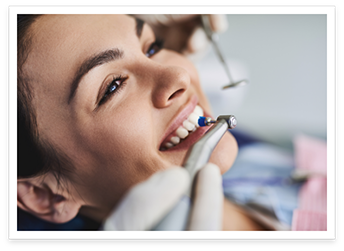
Even if your teeth and gums aren’t bothering you right now, that doesn’t necessarily mean there isn’t a potential emergency brewing under the surface. Tooth decay and oral infections can easily develop without presenting any symptoms until severe damage has already been done. That’s why we recommend visiting Dr. Pham every six months for a checkup and cleaning. Not only can she diagnose early signs of emergencies and stop them in their tracks, but our hygiene team can remove plaque from your teeth that often causes emergencies in the first place.
Maintain Good Oral Hygiene Habits

Twice-a-day brushing and daily flossing are two of the most important things you can do if you want to avoid a sudden visit to our emergency dental office in Leesburg. These habits prevent food debris from lingering on your teeth and attracting harmful bacteria that cause cavities, gum disease, and other painful oral issues. We recommend using a toothpaste that contains fluoride, as this natural mineral strengthens the enamel of your teeth, making them more resilient to decay.
Eat a Healthy, Balanced Diet

Your diet also plays a crucial role in your oral health. For instance, consuming large amounts of sugary and starchy items makes it easier for cavity-causing bacteria to thrive. To minimize this risk, try to eat these foods in moderation. Instead, your diet should be filled with fruits and vegetables that contain valuable nutrients such as calcium and vitamin C, which promote healthy teeth and gums.
Wear a Mouthguard
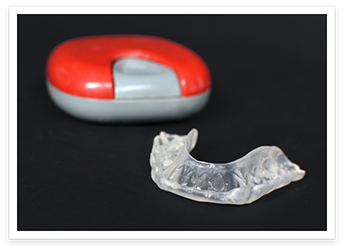
Mouthguards can protect your teeth from sports-related injuries as well as chronic wear and tear from nocturnal teeth grinding. If you play a sport that comes with the risk of forceful impact to the face, such as football, hockey, basketball, or baseball, you’ll want to wear an athletic mouthguard to reduce the chance of breaking or knocking out a tooth. A nightguard, on the other hand, is worn to bed and shields your teeth from becoming weakened (and more susceptible to decay and fracture) from long-term grinding and clenching.
Never Use Your Teeth as Tools

Opening a bottle or package with your teeth might seem like a convenient idea, but it’s just not worth it. Over time, these habits wear down your enamel, making them more likely to break the next time you use them as a tool. Your smile will thank you if you take the time to grab the bottle opener or scissors instead.
Dental Emergency FAQs
What should I keep in my emergency dentistry kit?
You never know when an emergency might occur, which is why it’s important that you keep a kit on hand to help minimize your symptoms until you can get in to see a member of our team. Some of the most common items to keep in your emergency dentistry kit include:
- Gauze pads and dressings
- Sterile gloves
- Small container for teeth or lost/broken restorations
- Cotton balls
- Dental cement
- Denture adhesive
- Anti-inflammatory medicines like ibuprofen
- Floss
- Ice pack
- Topical anesthetic
- Dental practice phone number
How should I sleep with tooth pain?
Make sure you are keeping your head elevated to keep the blood from moving to your head. This will only increase the amount of pressure and cause additional discomfort to your tooth. You may also find it helpful to take an over-the-counter pain reliever. You should also avoid acidic, cold, spicy, or hot foods before bedtime. If at any point, you begin to notice an increase in pain or swelling, use a cold compress on the area to numb it. This will reduce discomfort until you can see someone in our office.
Can superglue be used to repair a broken denture?
Because a broken denture is considered a dental emergency in Leesburg, you might think using superglue will be a quick fix solution. Unfortunately, this is incorrect. In fact, superglue is highly discouraged. Why? For the following reasons:
- It does not hold up well in damp environments. This means it is unlikely to keep your denture together inside your mouth.
- It is a toxic solution that can cause an allergic reaction.
- It will change the way your food tastes.
Instead of trying to fix your broken denture yourself, call our office and let us know about your situation. We will be quick to schedule an appointment and get you the help you need.
Can I pop a dental abscess on my own?
A dental abscess can be extremely dangerous to your oral and overall health. You will likely be in much pain when suffering from this type of infection and should not try to pop it on your own. If you do, it can lead to bacteria and other harmful particles entering the wound and causing worsening symptoms. It is best to wait and see us so we can take the proper precautions to address your abscess and ensure your health and safety.
Do chipped teeth heal?
A chipped tooth cannot heal on its own. Although tooth enamel is the hardest substance in your body, it can be damaged with excessive pressure. Should you experience a chipped tooth as a result of physical activity or eating hard foods, you will need to schedule an appointment with us. Depending on the severity of the chip, we may be able to fix it with composite resin, or we’ll discuss the potential for a customized veneer if necessary. We can also consider a dental crown if the chip is hindering the structural integrity of your tooth.
I Need a Checkup & Cleaning I am Worried About Gum Disease I Need a Dentist for My Child I Have a Cavity or Broken Tooth I am Missing One or More Teeth I Want to Enhance My Smile I Want a Straighter Smile I am Scared of the Dentist I Have Sleep Apnea or Snore I Have Jaw Pain & Headaches View Our Services




